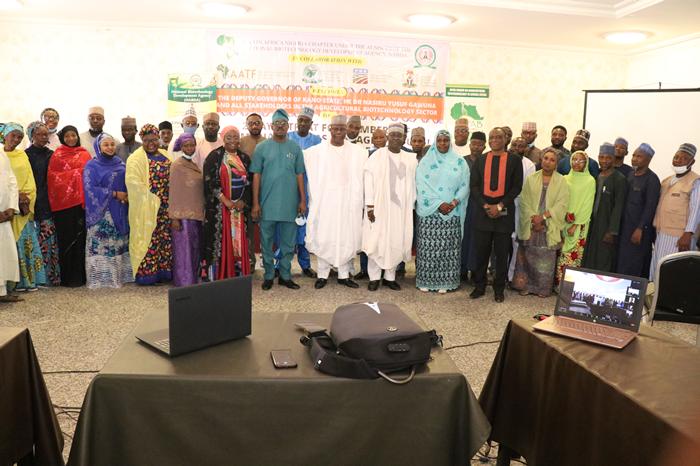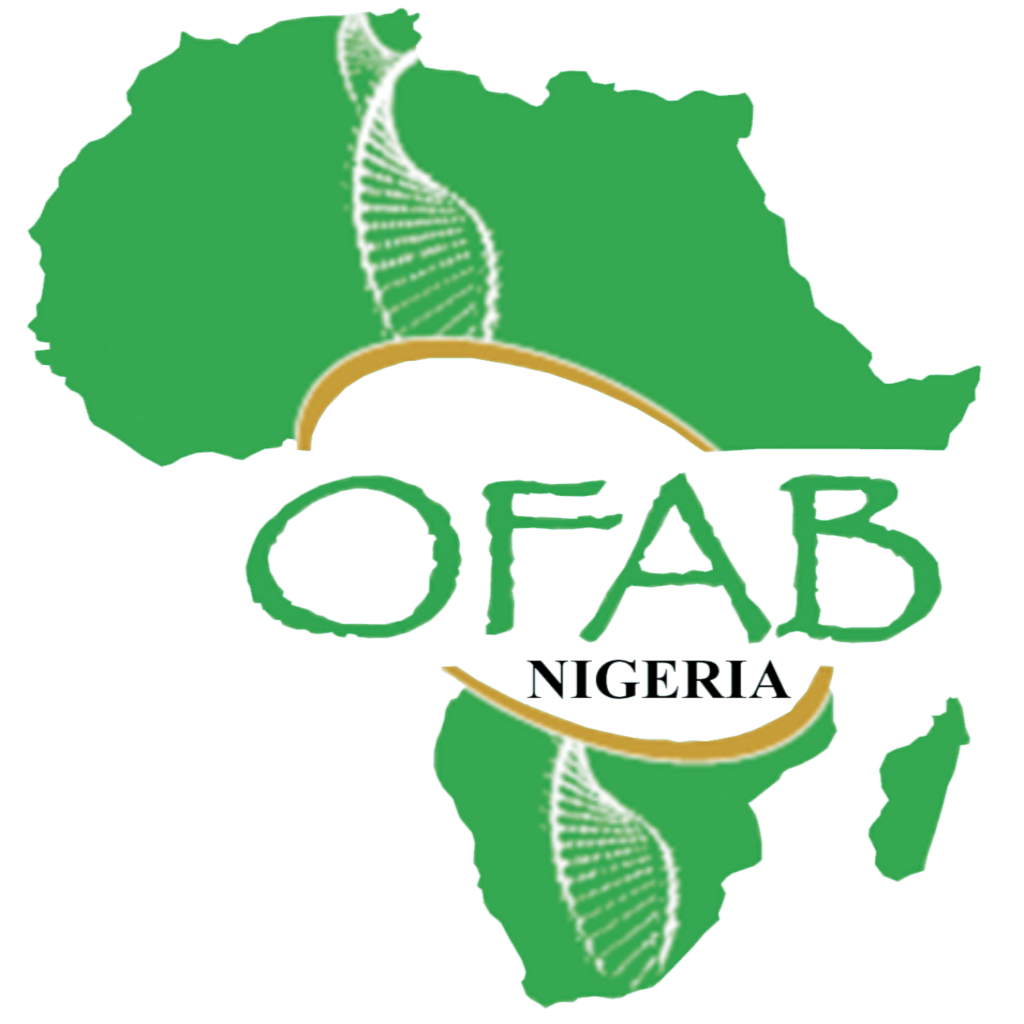
In order to bring journalists up to speed with the developments in the biotechnology sector and how such changes can improve lives and general well-being of Nigerians, and to demystify biotechnology concept and address issues of misunderstanding in the face of opposition from anti GM groups, the Open Forum on Agric Biotechnology in Africa, OFAB, Nigeria Chapter held a One-Day capacity building programme for selected journalists practicing in the North West Nigeria.
Speaking during the opening ceremony, the Director General/CEO, NABDA, Professor Abdullahi Mustapha solicited media support in creating awareness about the newly commercialized Bt. crops in Nigeria. According to the DG, this awareness is important as there are farmers in the North-West region who are farmers of Bt crops and producers of agricultural products. Professor Mustapha told the media that Nigeria made history as the first country in Africa and the world at large to develop and release a cowpea variety that is resistant to the notorious Pod Borer. The insect has the capacity to destroy a whole beans farm and leaving the farmer helpless but this new bean variety will help farmers overcome the challenges associated with growing cowpea.
On his part, the Director of Agricultural biotechnology at NABDA, Dr. Nasiru Ibrahim in his remarks, urged the members of the media to familiarize themselves with biotechnology practices in Nigeria so as to always spread accurate information. The Executive Director, National Agricultural Extension and Research Liaison Services (NAERLS), Prof. Emma Ikani said the media plays strategic roles in disseminating right scientific facts to the public. He called for mutually beneficial relationships among biotechnology agencies and institutions, and the media.
Country Coordinator of OFAB, Dr Rose Suniso Gidado spoke on the benefits of biotech crop which are increase in crop productivity, alleviation of poverty and hunger, conservation of biodiversity and reduction of CO2 emissions. She also listed the GM crops being developed in Nigeria to include: TELA Maize, NUE Rice, Cassava-VIRCA Plus, African Biofortified Sorghum (ABS), Herbicide Tolerant (HT) Soybean, Pod Borer Resistant (PBR) Cowpea, Bt cotton.
Director General of National Biosafety Management Agency, Dr Rufus Ebegba assured that the agency will enforce its powers so that only safe products are released to Nigerians. The media should therefore inform the public by putting out only verifiable facts.
The Regional Director, Africa Agricultural Technology Foundation, AATF, Dr. Issoufou Kollo gave a brief historical review of agriculture in Africa, how sustainable agricultural system was, but later collapsed with the European conquest, rapid population growth and urbanization. He said creating science-based agricultural systems which will be more sustainable, would involve mastering modern science and technology. Dr Kollo cited that huge importation of rice into Nigeria will become history when rice production is improved. And led to the initiative by the AATF and its partners is to develop rice varieties with high nitrogen use efficiency (NUE), high water use efficiency (WUE) and salt tolerance (ST).
While the Country Coordinator, Program for Biosafety Programs (PBS) Nigeria, Dr. Mathew Dore, congratulated the organizers and expressed happiness at PBS being part of the epoch-making retreat. He applauded the strategic choice of Kano State for the event stating that the North-western region of Nigeria has all the ecological requirements for Nigeria’s two commercialized GM Crops (PBR Cowpea and Bt. Cotton).
The Deputy Governor of Kano State, His Excellency Dr. Nasiru Yusuf Gawuna, who was represented by his Special Adviser on agriculture, Mr. Hafis Muhammed, advised Nigerian local famers to take full advantage of the gigantic opportunities offered by agricultural biotechnology application. “Our strength as a country lies in our ability to optimize our agricultural production to create jobs, create incomes and raise the standard of living of our people. For all this, agricultural biotechnology offers us a golden platform and I think we should grab it with both hands”, he stated. Ending his remarks, Dr. Gawuna assured on Kano State Government’s support and buy-in for the technology to ensure farmers’ access to the improved seeds.
Prof. Anthony Igyvue who is a Lecturer of media and journalism studies in the Nasarawa State University, Keffi, Nasarrawa State, Alex Abutu, Communication Officer of AATF and Mr Onche Odeh, Editor, AfricaSti were professional media trainers who drilled the media on effective biotechnology reporting. Mr Abutu spoke about how spreading wrong information can be dangerous and the essence of the training which is to equip them with proper and factual knowledge especially in the topic of GMO’s (Genetically Modified Organisms). Professor Igyvue said the rule of journalism is to never disperse information that is not factual. He addressed the media in a 2-part presentation: establishing a Nigerian media landscape and finding the rationale for developmental journalism. He spoke on the imbalance in news reporting which focuses more on politics and less on agriculture and important issues that affect the lives of members of the community. Mr Bishop Onche Odeh, engaged the media on why they should report on Biotechnology, analysing that there are not many differences between journalists and scientists owing to the fact that they both engage in fieldwork and fact finding which is further modified to produce results. He said they both need each other. He then posed a question to members of the media on why they think Biotechnology should be covered.

